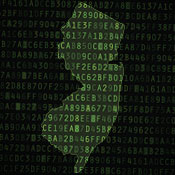CFO Gets Prison Time for HITECH Fraud
June 22, 2015Hospital Executive Falsified ‘Meaningful Use’ Attestation
By Marianne Kolbasuk McGee, June 19, 2015.
A former Texas hospital CFO has been sentenced to 23 months in federal prison for submitting false documents so a medical center could receive payments under the HITECH Act electronic health records financial incentive program.
In addition to his prison sentence, Joe White, former CFO of the now-shuttered Shelby Regional Medical Center in East Texas, was ordered to pay restitution of nearly $4.5 million to the HITECH incentive payment program.
Court documents indicate that to help pay the restitution, White has been ordered to liquidate an IRA account and an annuity, which as of November 2014, had respective balances of about $115,000 and $2,500.
White, 68, of Cameron, Texas, pleaded guilty on Nov. 12, 2014, to making false statements in November 2012 to the Centers for Medicare and Medicaid Services that Shelby Regional Medical Center was a meaningful user of EHRs, when the hospital actually was primarily using paper records, according to the Department of Justice (see CFO Pleads Guilty to HITECH Act Fraud).
To obtain financial incentives from Medicare or Medicaid under the HITECH Act, hospitals and physicians must submit detailed documents that attest to meeting the requirements for the program, including conducting a HIPAA security risk assessment.
Case Details
In a statement issued by the FBI on June 18, U.S. attorney John Bales said, “The EHR incentive program was designed to enhance the delivery of excellent medical care to all Americans and especially for those citizens who live in underserved, rural areas like Shelby County. There is no doubt that Mr. White understood that purpose and yet, he intentionally decided to steal taxpayer monies and in the process, undermine and abuse this important program.”
According to information presented in court, White was CFO for Shelby Regional as well as other hospitals owned and operated by Tariq Mahmood, M.D., of Cedar Hill, Texas.
The 54-bed Shelby Regional closed last year amidst legal issues involving Mahmood, who was indicted by a federal grand jury on April 11, 2013. He was charged with conspiracy to commit healthcare fraud and seven counts of healthcare fraud.
Court documents indicate that Mahmood was sentenced on April 14 to 135 months in federal prison, and also ordered to pay restitution totaling nearly $100,000 to CMS, the Texas Department of Health and Human Services and Blue Cross Blue Shield.
White oversaw the implementation of EHRs for Shelby Regional and was responsible for attesting to the meaningful use of the EHRs to qualify to receive HITECH incentive payments from Medicare, according to the FBI.
As a result of White’s false attestation, Shelby Regional Medical Center received nearly $786,000 from Medicare, the FBI statement says. In total, hospitals owned by Mahmood were paid more than $16 million under the Medicare and Medicaid EHR incentive program, the FBI says.
A Justice Department spokeswoman tells Information Security Media Group that the $4.5 million restitution that White was ordered to pay represents the EHR incentive money Shelby Regional received from CMS under false attestation, as well as EHR incentive money that other hospitals owned by Mahmood, for which White was also CFO, received from CMS. While White did not personally receive the incentive money from CMS, “restitution is mandatory pursuant to the Mandatory Victim Restitution Act of 1996,” she explains, citing 18 USC 3663A(a)(1), which says, “Notwithstanding any other provision of law, when sentencing a defendant convicted of an offense described in subsection (c), the court shall order, in addition to…any other penalty authorized by law, that the defendant make restitution to the victim of the offense. …”
More Cases to Come?
Healthcare attorney Brad Rostolsky of the law firm Reed Smith says that although most healthcare professionals and organizations participating in the HITECH meaningful use incentive program are trying to play by the rules, federal regulators must be on the look-out for potential fraudsters, considering the billions of dollars in incentives being paid. “My sense is that the large majority of institutional and small/solo practice providers appreciate the context in which these meaningful use attestations are being made, and they focus on ensuring that the attestations are true and accurate,” he says. “That said, in situations where the facts are as they are [in the Joe White case], it would not surprise me if the government continues to be aggressive in its enforcement.”
Attorney David Holtzman, vice president of compliance at security consulting firm CynergisTek, says he expects federal authorities will file more HITECH criminal cases. “The sense we have gotten from public statements by OIG and others involved in prosecuting healthcare fraud violations is that there are a number of investigations ongoing to determine if there has been fraud in obtaining funds through the EHR incentive payment program,” he says.
Holtzman suggests that those organizations that have received HITECH incentives must keep thorough documentation to prove they met all the requirements.
“The key is to keep detailed documentation of the information that was used to support the representations in the attestation for seven years,” he says. “An individual or organization can avoid criminal culpability through showing that a reasonable effort was made to support a belief that the provider or hospital had met the meaningful use requirements and was therefore eligible for receiving EHR incentive payments.”
HITECH Audits
While criminal cases related to the HITECH Act EHR incentive program have been rare, federal regulators have been ratcheting up their audits of healthcare entities attesting to “meaningful use” of EHRs.
Among those selected was Temple University Health System in Philadelphia, which recently passed an audit for meaningful use compliance at one of its hospitals, says CISO Mitch Parker. The area of attestation most closely scrutinized by CMS auditors was Temple’s HIPAA security risk assessment, he says.
“You can’t skimp on the risk assessment. That’s the first and foremost item that they look for,” he says. “And it can’t be one of those cut-and-dry ones. You have to be very detailed about it. We had about 300 categories in ours.”




